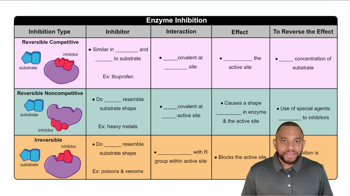Consider the following segment of mRNA produced by the normal order of DNA nucleotides:
ACA UCA CGG GUA
f. What is the amino acid order if a deletion mutation removes the A at the beginning of the mRNA segment?
 Verified step by step guidance
Verified step by step guidance Verified video answer for a similar problem:
Verified video answer for a similar problem:



 2:42m
2:42mMaster Translation: Protein Synthesis Concept 1 with a bite sized video explanation from Jules
Start learning